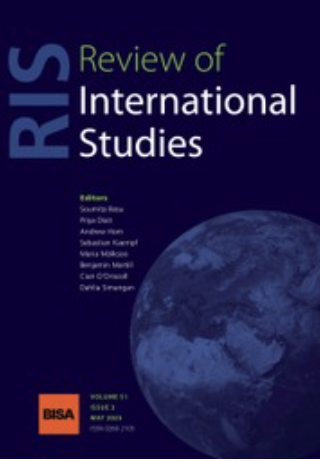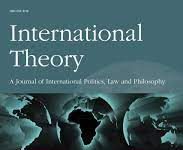Abstract
One of the central insights of critical and constructivist International Relations (IR) scholarship is that identity-seeking matters in world politics. Ontological Security Studies (OSS) has expanded on this insight, emphasising that actors may prioritise maintaining a stable sense of self over physical security and other concerns. Yet the question of radical identity change, particularly its affective dimension, remains underexplored. To address this gap, we draw on Lacanian psychoanalysis and argue that ontological security is sustained by fantasies aimed at filling a primordial lack that can never be resolved. This lack generates anxiety, which actors attempt to soothe by attaching their desires to empirical signifiers – objects-cause of desire – that promise wholeness. Our argument centres on the idea that the rearticulation of desire occurs through the affective mechanism of catharsis, manifesting as either metaphor or metonymy. We illustrate our argument through the case of Serbia’s cathartic (re)articulation of Kosovo as its object-cause of desire. In particular, we juxtapose earlier successful articulations of Kosovo as a metaphoric substitution for other desires with more recent, less effective attempts to rearticulate the north of Kosovo and the submerged cultural heritage in Gazivode Lake as metonymic substitutions for the rest of the territory.
This article is co-authored with dr. Marina Vulović and published OA in Review of International Studies https://www.cambridge.org/core/journals/review-of-international-studies/article/catharsis-rearticulation-of-desire-and-ontological-insecurity-the-case-of-serbias-attachment-to-kosovo/2A7622D4F8960CFD39F6F050AFC89CE3




